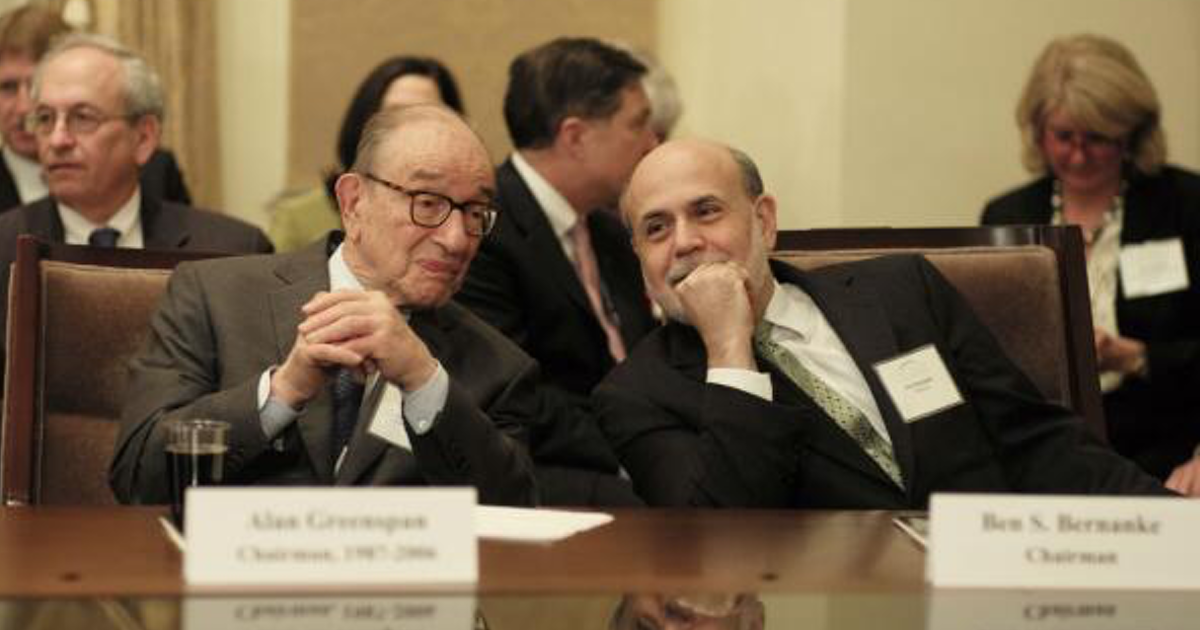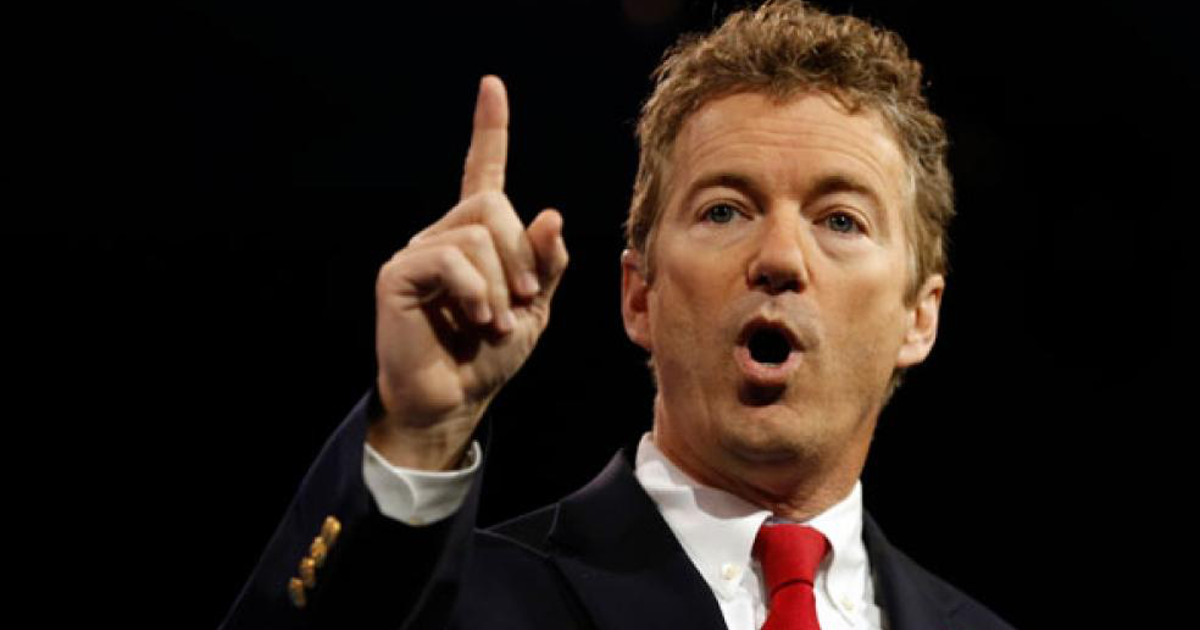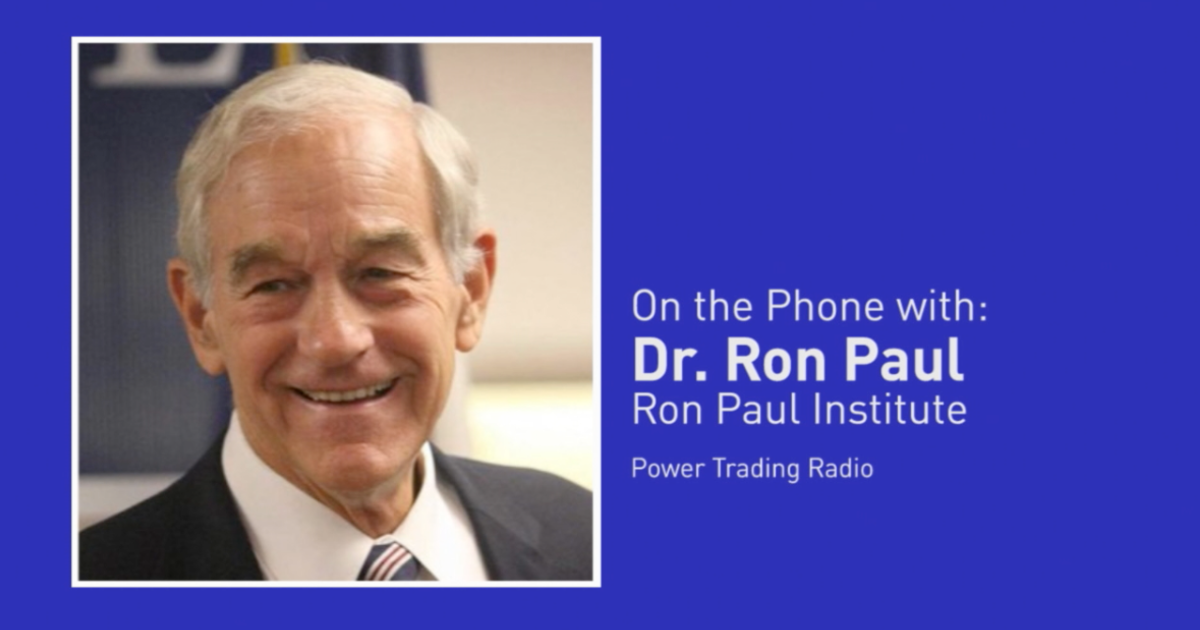|
By Liberty Report Staff
JPMorgan Chase CEO Jamie Dimon had some harsh words for the DC Swamp this week. However, Dimon is merely focusing on the symptoms of our problems rather than the cause. Central Banks in general, and The Federal Reserve specifically, have buried us in mountains of credit that they've created out-of-thin-air. No one should ever have the legal power to counterfeit currency. Jamie Dimon has been a long-time participant in this "system," and has profited handsomely from it. We need to get to the root and stop wasting time on the symptoms. Ron Paul discusses on Fox Business:
By Mark Spitznagel
There seems to be no shortage today of investors and pundits criticizing the market interventions of the world’s central banks. Monetary stimulus in the form of artificially low interest rates and bloated central bank balance sheets ($18.5 trillion, to be exact), the argument goes, have created another dangerous financial bubble (evidenced by ubiquitously bubbly stock market valuation ratios) that ultimately threatens the financial system yet again. The author shares wholeheartedly in this criticism. The ethical problem is, where were these voices when this all started, with Greenspan in the 1990s and, more specifically, with Bernanke in 2008? The central bank critics today who were not critics of — and in most cases were even sympathetic to — the great bailouts and stimulus that started almost a decade ago have reserved their criticisms only for those interventions that appear to hurt their interests, as opposed to those that have helped them. After all, no one would disagree that bailouts and monetary stimulus got us out of the last financial crisis, but they also certainly got us to where we are today, vulnerable to another even bigger one. We are so concerned about our friend the strung-out junkie, though we paid little mind when they were but a casual user. It is so easy to care when problems become obvious and critical, so hard when they are subtler and nascent. Artificial stimulus in an economy is the same: it is easily ignored as a problem in its infancy, but it always develops into a huge problem. Economies and markets are structurally altered and distorted by such stimulus, such that it cannot be removed without breaking those new structures. It must rather be ever increased, though even this will only delay an inevitable collapse. It is just too easy in today’s investing environment, and even necessary for most participants, to sympathize with and even exploit central bank interventions. Doing otherwise creates an opportunity cost in one’s career and investments. But doing so puts one in the position of enabler to the economic system’s self-destructive dependence on artificial stimulus. One cannot be a part-time classical liberal, criticizing central planning only when it runs contrary to one’s interests. Indeed, this is the very problem of Socialism: there are winners and losers; the winners are in the here and now — the seen; the losers are in the future — the unseen. The winners don't complain, and the losers can‘t until it is too late. But as the future becomes the here and now, the unseen becomes the seen, those who now think they are anticipating a problem and its cause, yet supported that same cause when they stood to benefit, must be seen for what they are: fellow travelers in the central planning ideology that grips today’s financial markets. They are too late.
This article was originally published at The Mises Institute.
This week, Rick Perry suggested an economic principle, specifically Say's Law on Markets. Was Perry's thinking sound? Did he deserve many of the criticisms that he received? Ron Paul weighs in on today's Myth-Busters.
By Liberty Report Staff
Tucker Carlson may not be a pure non-interventionist, but he did the world a lot of good this week by bulldozing several neocons on his show. It's impossible to calculate the damage that neoconservatives (i.e., neocons) have done to both America and the world with their foreign policy ideas of Empire. The more that neocons are exposed for their never-ending disasters, the better chance we have at someday adopting a sane foreign policy of peace. Watch Tucker take down Ralph Peters and Max Boot below:
By Liberty Report Staff
Protectionism and the erecting of tariffs are equivalent to "cutting off the nose to spite the face." When President Trump imposes tariffs on another country, it's another way of saying that he's raising taxes on Americans! After all, it's the American consumer that pays for the tariff, not the foreign country. The U.S. government has no taxing power over foreign nations. We Americans, on the other hand, are not as fortunate. We are the ones who must suffer with a further reduction in our standard of living. Ron Paul discusses with Kennedy below:
Secretary of State Rex Tillerson has returned from a trip to the Middle East empty-handed. He sought to diffuse the growing crisis between Qatar and Saudi Arabia and its allies. Demands have been made, sanctions and blockades have followed. President Trump initially appeared to take the Saudi side, then backtracked. Is there a way out of this crisis and what should the US role be?
By Senator Rand Paul (R-KY)
I miss the old days, when Republicans stood for repealing Obamacare. Republicans across the country and every member of my caucus campaigned on repeal – often declaring they would tear out Obamacare “root and branch!” What happened? Now too many Republicans are falling all over themselves to stuff hundreds of billions of taxpayers’ dollars into a bill that doesn’t repeal Obamacare and feeds Big Insurance a huge bailout. Obamacare regulations? Still here. Taxes? Many still in place, totaling hundreds of billions of dollars. Insurance company bailouts? Those, too. Remember when Republicans complained about Obamacare’s risk corridors? Remember when we called the corridors nothing more than insurance company bailouts? I remember when one prominent GOP candidate during a presidential debate explicitly called out the Obamacare risk corridors as a bailout to insurance companies. Does anyone else? Now, the Senate GOP plan being put forward is chock full of insurance bailout money – to the tune of nearly $200 billion. Republicans, present company excluded, now support the idea of lowering your insurance premium by giving a subsidy to the insurance company. Remarkable. If the GOP now supports an insurance stabilization fund to lower insurance prices, maybe they now support a New Car stabilization fund to lower the price of cars. Or maybe the GOP would support an iPhone stabilization fund to lower the price of phones. The possibilities are limitless once you accept that the federal government should subsidize prices. I remember when Republicans favored the free choice of the marketplace. The Senate Obamacare bill does not repeal Obamacare. I want to repeat that so everyone realizes why I’ll vote “no” as it stands now. The Senate Obamacare bill does not repeal Obamacare. Not even close. In fact, the Senate GOP bill codifies and likely expands many aspects of Obamacare. Read the rest at Breitbart
After US-led efforts to liberate Mosul from ISIS control, the entire city is destroyed. Civilian deaths from US-led airstrikes are in the thousands. The US mainstream media is silent. But if Mosul is the great success that the US president and military leaders claim it is, can we bring the troops home now?
By Ron Paul
I recently had the great pleasure of sitting down for a conversation with Larry King. We discussed how America's foreign policies are the biggest threat to our own country. We also talked about how Obamacare helped to destroy the doctor-patient relationship. I hope you enjoy it.
By Liberty Report Staff
We're living through a unique time in monetary history. Governments, via their central banks, print money out-of-thin-air to finance gargantuan welfare and warfare states. In short, it's a system of legalized counterfeiting by private monopolies. While obviously it's possible for such a dishonest and diabolical system to exist, it's at the same time impossible for it to last. It's time to start thinking about the post-counterfeiting age. Ron Paul discusses with Power Trading Radio: |
Archives
July 2024
|





 RSS Feed
RSS Feed



